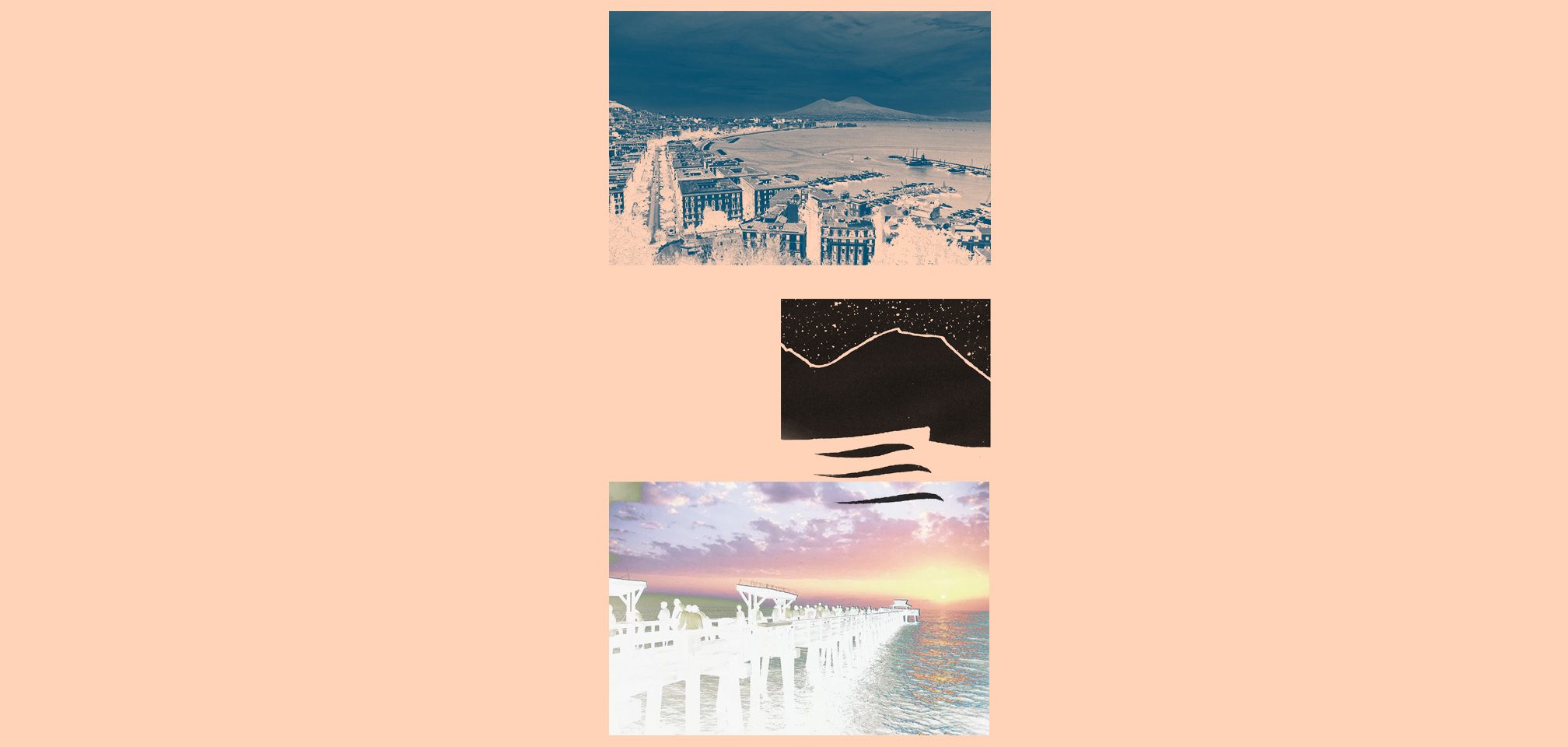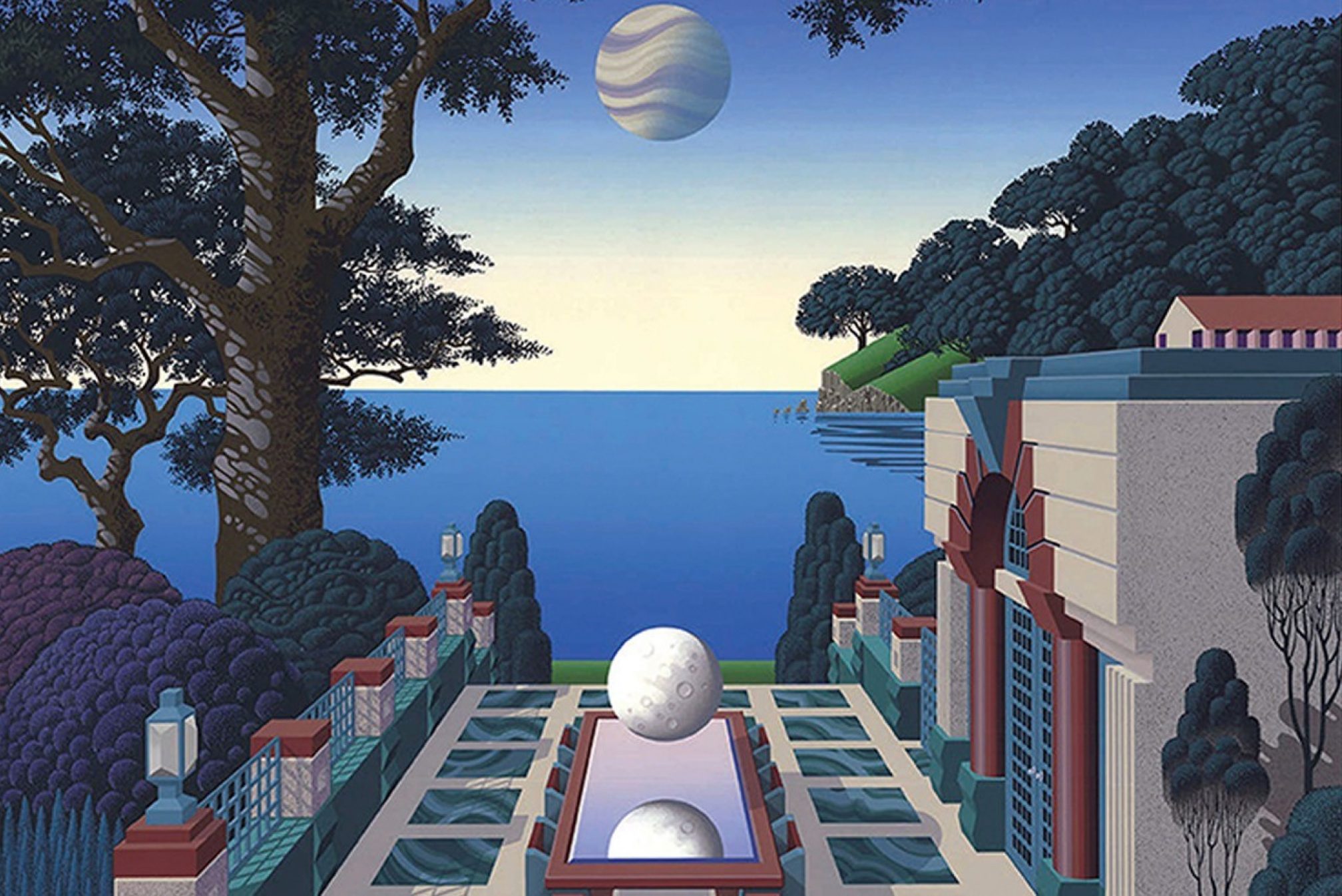 Features
Features
Italian Pride: We met the new school of Italo Disco in Naples
The city is nurturing a hot, heady and very Italian style of dance music
I arrive in Naples after a 10-hour train ride through the Italian countryside. I’m here to discover a new breed of modern day Italo discos that are giving birth to what’s becoming known as ‘The Napoli Sound’. I'd been told of the city's effortless charm and abundant bravado, the Southern Italian romance to be found down its cobbled walkways and in its bustling courtyards. But right now it’s raining and the towering Mount Vesuvius which looks out across the Mediterranean is blanketed in clouds. “We are not used to this here in Naples,” says Raffaele Arcella, aka Periodica Records co-founder Whodamanny, who finds me taking shelter in a café. “But you can’t always have perfection...”
Ever since the 70s Neapolitan names like Pino Daniele, saxophonist James Senese, Ernesto Vitolo and the Napoli Centrale supergroup have crafted a musical identity for Naples that fuses jazz rock and leftfield funk with a distinct, yet impossible to define flavour that comes as standard to life spent next to the sea. “If you have lived here you have this feeling inside of you, and it will always be there for you,” says producer and Early Sounds Recordings co-founder Pellegrino Snichelotto. Snichelotto’s 2016 mini LP as Pellegrino, ‘Periplo’, built on the city’s legacy with six tracks of balearic jazz and beachfront tropicália that immediately tops your cocktail with a tiny umbrella upon first listen; an exploration of the “Mediterranean disco” that’s kept Naples bumping for decades.
“Naples is a sea port city,” he says. “As you gaze toward the city from the sea, the port almost looks like it’s opening her arms to the ocean, welcoming different people, urging you to come here and get lost in our streets. There is a willingness to share with each other and we’re open to influences, but it’s important to say I love Naples for the same reasons that I hate it. It’s tough, it’s sometimes not an easy city to live in, but you feel that in the streets. It’s reflected in people’s music, and our music, too.”

Throughout the ‘80s a huge scene arose in Naples of homegrown electronic Italo disco, often through labels and distribution arms founded by the Camorra crime syndicate, who were releasing hundreds, if not thousands, of records a year. Trading arpeggiated basslines for Euro trance synth strings, the Camorra music model still exists in some way to this day in ‘neomelodico’; a subgenre of Italian pop found only in the country’s southern regions. Few of those early records were ever heard outside of Naples, only changing hands when old timers decided to flog their dusty record collections at one of the city’s many flea markets. But as these records passed through the generations yet failed to make it beyond the city walls this harboured a Neapolitan sound of its own; “a mindset of ‘let’s just make some noise,’" as Snichelotto describes it.
"Many people think of Italian electronic music as Italo disco, music made in the ‘80s, but Italo is everything made in Italy designed for the discotheque, from the past to the present day,” says Dario Di Pace. Di Pace charts solo musical expeditions as Mystic Jungle, but alongside Whodamanny and Enrico Milord Fierro this south Italian supergroup form The Mystic Jungle Tribe, a synthesiser-obsessed trio of native Neapolitans. Between them and their tight knit community of collectors, DJs and party devotees, the Tribe boast more side projects than most. Together, Arcella and Fierro provide exotic movements as The Normalmen, while under the Rio Padice moniker, Di Pace has released EPs for both Clone and Dekmantel. Merko Palomba, Fabio Gits and Cristiano Cesarano make up Soul Express, a cornerstone of Naples nightlife who brought Pender Street Steppers, DJ Rahaan and Jayda G to the Mediterranean and caused an 800-person roadblock in January of this year after hosting Naples icon Tony Esposito’s homecoming performance.
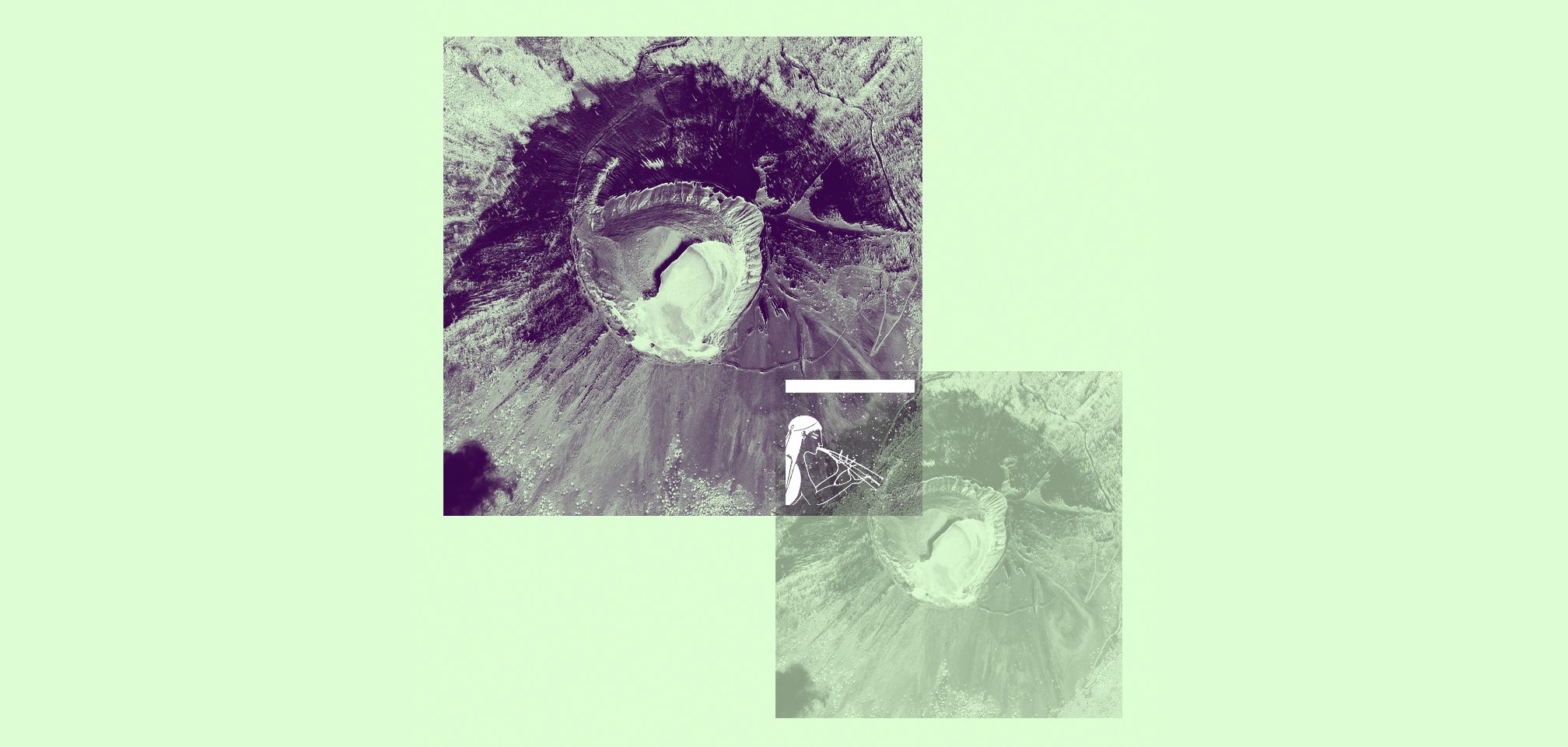
In Napoli vehicles revered and feared in equal measure. I narrowly evade death by taxi at least six times throughout my trip, and on one occasion a moped convoy of kids no older than 14 speeds past me all while texting on their phones. But as those on four wheels race through the streets, on foot life moves at a less life-threatening pace. "We take things slowly here, nothing is a rush," says Arcella, and it shows in their music. As me and Arcella drive through the surrounding hills of Naples we arrive at West Hill Studios, the Tribe’s backyard hangout where they spent six months and countless hours crafting their newest LP ‘Plenilunio’. The studio is a hidden cave of wonders, filled with Casio synthesisers, drum machines, a life-size stuffed tiger and tarantulas that sometimes crawl in from the outside. “This place is their place too,” Arcella says casually.
Paying homage to their roots is important to the Tribe. As we listen through ‘Plenilunio’ Raff asks "does it sound Italian to you?” at least four times. For Di Pace, his first solo LP ‘Tropical Interlune’ was originally influenced by the sounds of ‘70s and ‘80s America, yet found the 4400 mile distance between Naples and New York too much of a cultural disconnect. “Around that time [of making ‘Tropical Interlune’] I began listening to American boogie and disco, but after a while I wondered why I have to find my inspirations in a culture and background that is not mine?,” he says. “I am not American and it is not my culture, so I started to discover Italian music. Italian jazz funk, electronica and disco, and it was all incredible. When I play as a DJ I like to play Italian records because...” he pauses. “Italian pride?” I ask. “Of course,” he replies. “When you discover this kind of music and study it, you can’t go back to anything else,” he says.
Whatever it is, Neapolitan's are beyond passionate about it. You align yourself to your favourite pizza place the same way you would a football team, and their outlook on the music they make is no different. “Here in Napoli we are very sentimental people, in the good and bad sense. You are one of my friends? No, you are my brother, you are my blood. If you are my enemy? I cannot see you anymore, you don’t exist to me,” Raff tells me with obvious enthusiasm. “It’s a character trait of being from Napoli, so when you think of ‘the Napoli sound’ think about it in an extreme way. We take huge care in what we feel, so music from Naples is either extremely happy or extremely sad. For us, we only make music when we are happy. It’s unconscious really, because we have to have good feelings to make music.”
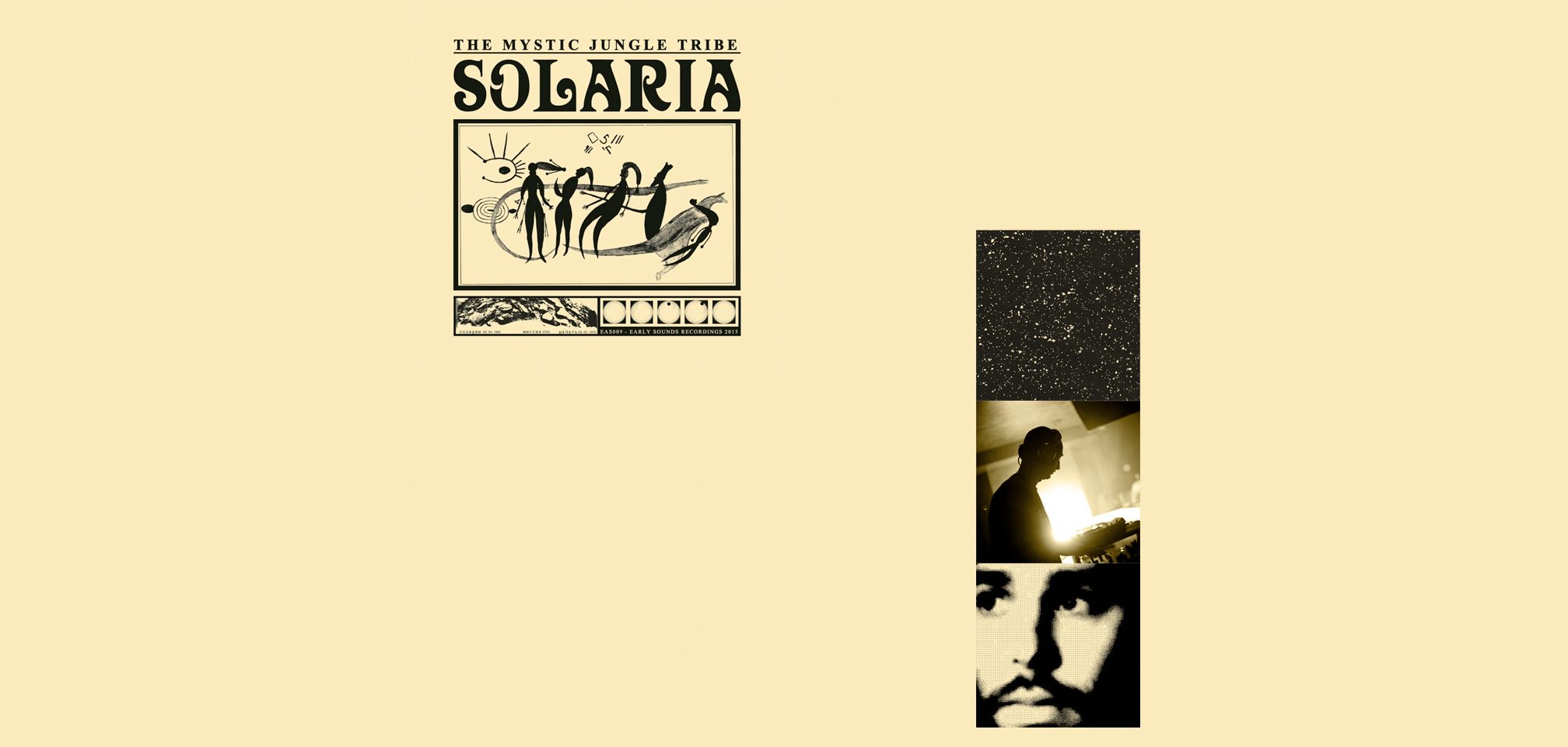
“Everything starts from an aesthetic,” adds Dario, explaining their almost prophetic approach to making music. “We don’t think of what type of music we want to produce, we just imagine it first…” Take the title track of ‘Plenilunio’, their musical interpretation of a blossoming flower, or ‘Terrazza Sul Mare’, from 2016's ‘Qvisisana’, which takes you to a ‘Terrace On The Sea’, even if you’re listening to it from a North London flat.
The next day I walk across town in the 28 degree sunshine, past countless people enjoying an al fresco Peroni, to Futuribile Records. Since opening in December '16, Futuribile has quickly become one of the city’s greatest sources of Italian wax; its racks expertly curated through Di Pace and Cesarano’s tireless search for long-forgotten, should-be classics. At one point Dario hands me a record with care, one of holy grail status that by the looks of the sleeve has been handed down through more than a few generations. It's Hans & Romeo's 'Flour Music', released in 1985 and currently listed on Discogs for upwards of £200. A poster of hi-NRG heroine Sabrina Salerno takes pride of place on their noticeboard 30 years after 'Boys, Boys, Boys' became a pool party staple; a nod to their long-held love of Italian icons across the years.
Futuribile also acts as the unofficial clubhouse of Early Sounds Recordings and its sub-label Periodica. Periodica formed as a way to showcase new artists and “really freaky stuff with no restrictions,” as Dario describes it, and since 2014 has been making dancefloors wonkier with mind-bending releases from Piyojo and Riccardo Schirò through to cruisin’ through ‘80s Miami music in Zampera & Mutto. Early Sounds Recordings however is where it all began; the label that since EAS001 in 2011 has become a home for the Nu Guinea duo of Lucio Aquilina and Massimo Di Lena.
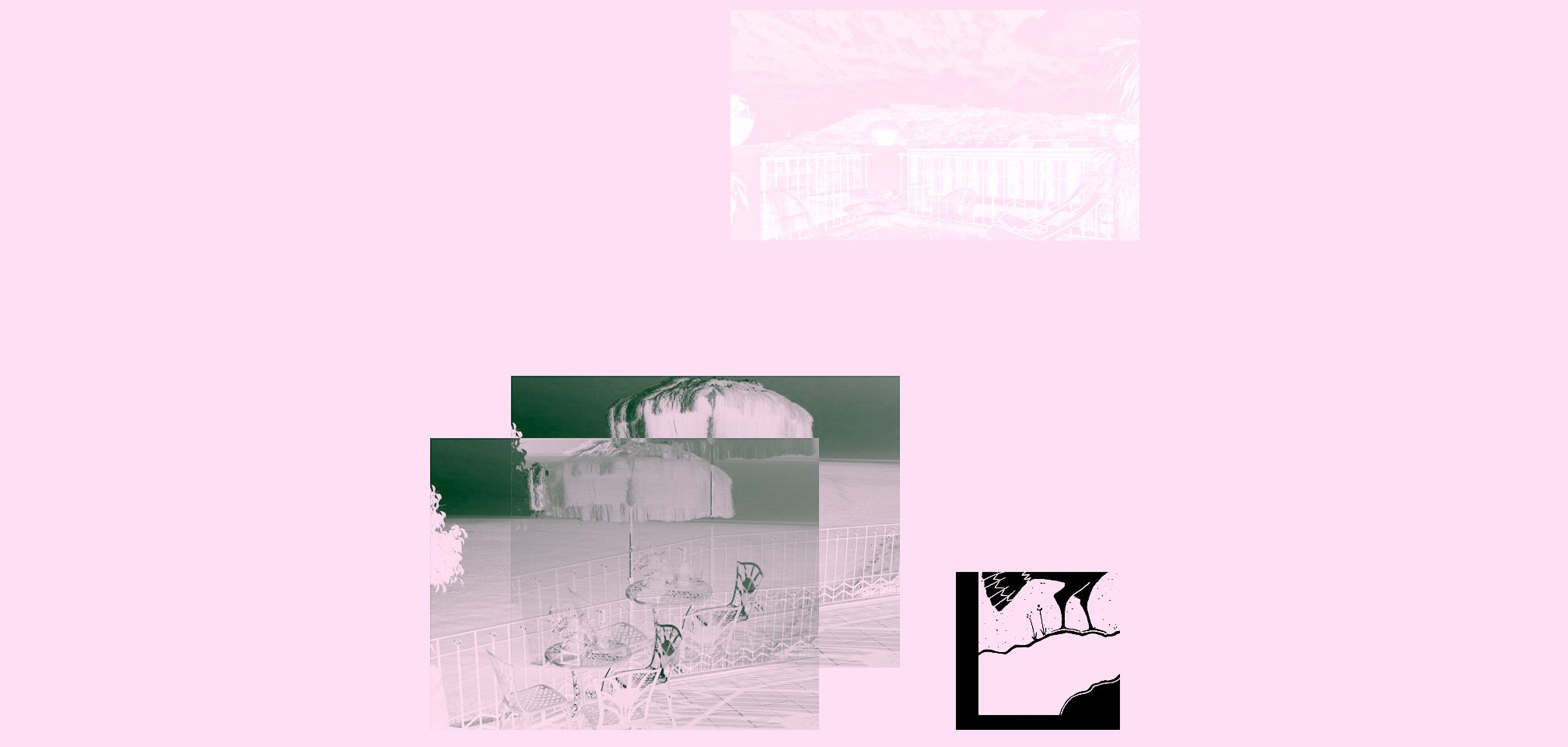
Under their former solo monikers, Lucio Aquilina and Massi DL had grabbed the attentions of Cocoon, Cadenza and Matthew Dear’s Spectral Sound who released some of their first records. “Around 2006 we were both being introduced to the right people, putting out the right records, starting to get bigger and one day we might have even become one of the ‘big guys’, but that wasn’t our lifestyle,” says Massimo of their early years. Big room techno had it’s perks of course – “the fee was really high,” Lucio remarks – but as the duo began delving deeper into funk, disco and jazz their tastes diversified. Through an epiphany brought on by Theo Parrish (“he was the perfect character to make us understand that you can play those records in a club and people would enjoy them,” Massimo says) Nu Guinea were born. “Nowadays when we play we make new friends and we’re in a place that we like to be,” Lucio adds. “We’re with a crowd who we feel like we belong to now.”
If the lifestyle in Naples were any more laid back it would be below sea level. The day doesn’t truly begin here until the temperatures cool just after 4pm, and even then people take great honour in never exerting themselves too much. “In warmer countries everyone is just more relaxed. If you go to Brazil or Cuba everyone is a bit more chilled out, and we have that same spirit in Naples,” thinks Massimo. It’s perhaps because of this shared connection to warmer climates that in 2016 Nu Guinea joined the French label Comet Records for ‘The Tony Allen Experiments’, a collaborative project between the duo and Nigeria’s iconic former Fela Kuti drummer. More recently they made up-and-coming songwriter Wayne Snow an honorary member, producing his shimmering ‘Nothing Wrong’ EP.
Today, Nu Guinea have traded the bay of Naples for Berlin, yet the influence of this techno city has failed to entice them back to their former musical identities. “I think the climate is influential on our music but we don’t get affected by the cold in Berlin, we just do the opposite and make our music more exotic,” says Massimo. Set to be released on the duo’s newly formed NG Records imprint the upcoming 7” ‘Amore’ is Nu Guinea’s letter to the city they left behind, a romantic tribute to love through the medium of palm tree funk and squelching basslines. “We are so connected to Naples that we don’t see distance. The city is our little island of happiness, and that will never change.”
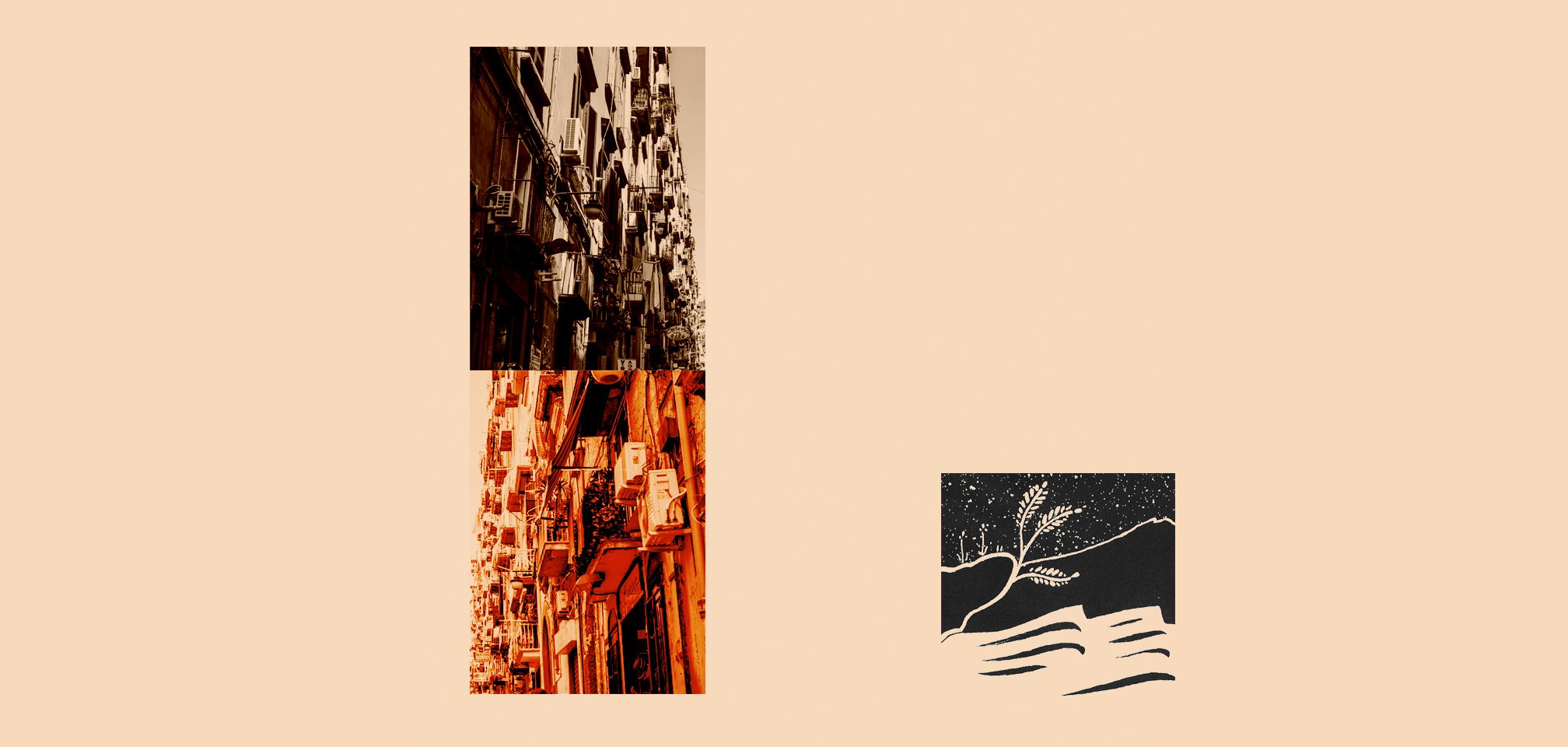
On my final night we take the 45-minute drive out of the city to the coast of Torre del Greco for Famiglia Discocristiana. Found at the very foot of Mount Vesuvius at a place on the sea named Café Street 45 is a modern day Club Tropicana where the drinks aren’t free but the ‘Italian style’ negroni’s are incredibly strong. Its host Lorenzo Sannino comes in high regard. Raff describes him as "Italy personified in one person," and Cesarano informs me that “there are records that only exist in Lorenzo’s bag.” He’s Napoli’s answer to DJ Harvey, and his monthly parties have become a staple for both local dancers and envious diggers keen to catch a glimpse at one of the many near-impossible to find records that fill his bag. “I could tell you, but then I'd have to kill you,” Sannino says when I try to learn the secret origins of his rare collection.
Overlooking the coast, and separated from a 10-metre cliff edge by a waist-high white fence, Café Street 45’s terrace looks across to Sorrento on the West, Naples the East and (if you squint) Ischia straight ahead. Torches flicker out to sea as fishermen spend their Friday nights catching squid but back on land, while Sannino and his guest for the night, Munich selector La Discoboulet, are serenading the terrace with slo-mo, weirded-out disco from all corners of the globe. “Sometimes, my friends and I go to the mountains and play our new tracks outdoors to see how the sound spreads throughout the valleys. In particular, we go to places where you can feel a strong connection between Naples and a sacred atmosphere or ancient folklore inspiration,” Sannino tells me, and for all my ingrained British scepticism toward musical spirituality, his unique approach to DJing makes perfect sense while near impossible to describe. Aside from a lonely James Brown record and an airing of Talking Heads ‘Girlfriend Is Better’, the night’s selections made the secret Shazam a futile endeavour, urging me to stay in the moment that in modern day clubbing is a dearly missed luxury. “Something unique belongs here,” says Sannino, trying to pinpoint exactly why Italians do it better. “You cannot express it with words, and can only do it through the music.”
Jack Needham is a freelance journalist. Follow him on Twitter
